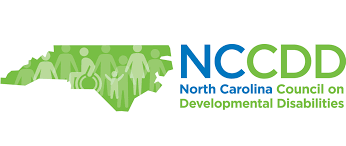Legal Resources

Disability Right NC

Legal Aid of NC
With a holistic approach, Legal Aid of North Carolina provides free legal help when people need it most because everyone deserves an advocate when their home, health, or livelihood is on the line. This includes working with grandparents on guardianship cases, fighting for children’s rights in schools, and defending victims of violence in child custody disputes. They offer legal support in the areas of housing, education, healthcare access & government benefits.

NC Council on Developmental Disabilities
Through advocacy, capacity building and systems change, the North Carolina Council on Developmental Disabilities improves the opportunities and lives of over 180,000 North Carolinians with intellectual and developmental disabilities (I/DD) and their families. The governor-appointed Council represents and partners with agencies, service providers and other organizations across the State that provide people with I/DD, their families and caregivers access to services and resources needed to live in their chosen community.

Duke Children’s Law Clinic

CADRE
The Center for Appropriate Dispute Resolution in Special Education’s (CADRE) emphasis is on encouraging the use of mediation, facilitation, and other collaborative processes as strategies for resolving disagreements between families and schools about children’s educational programs and support services. CADRE supports families, educators, administrators, attorneys, and advocates to benefit from the full continuum of dispute resolution options that can prevent and resolve conflict and ultimately lead to informed partnerships that focus on results for children and youth. CADRE’s website has a variety of resources for families including webinars, guides, and helpful tips.